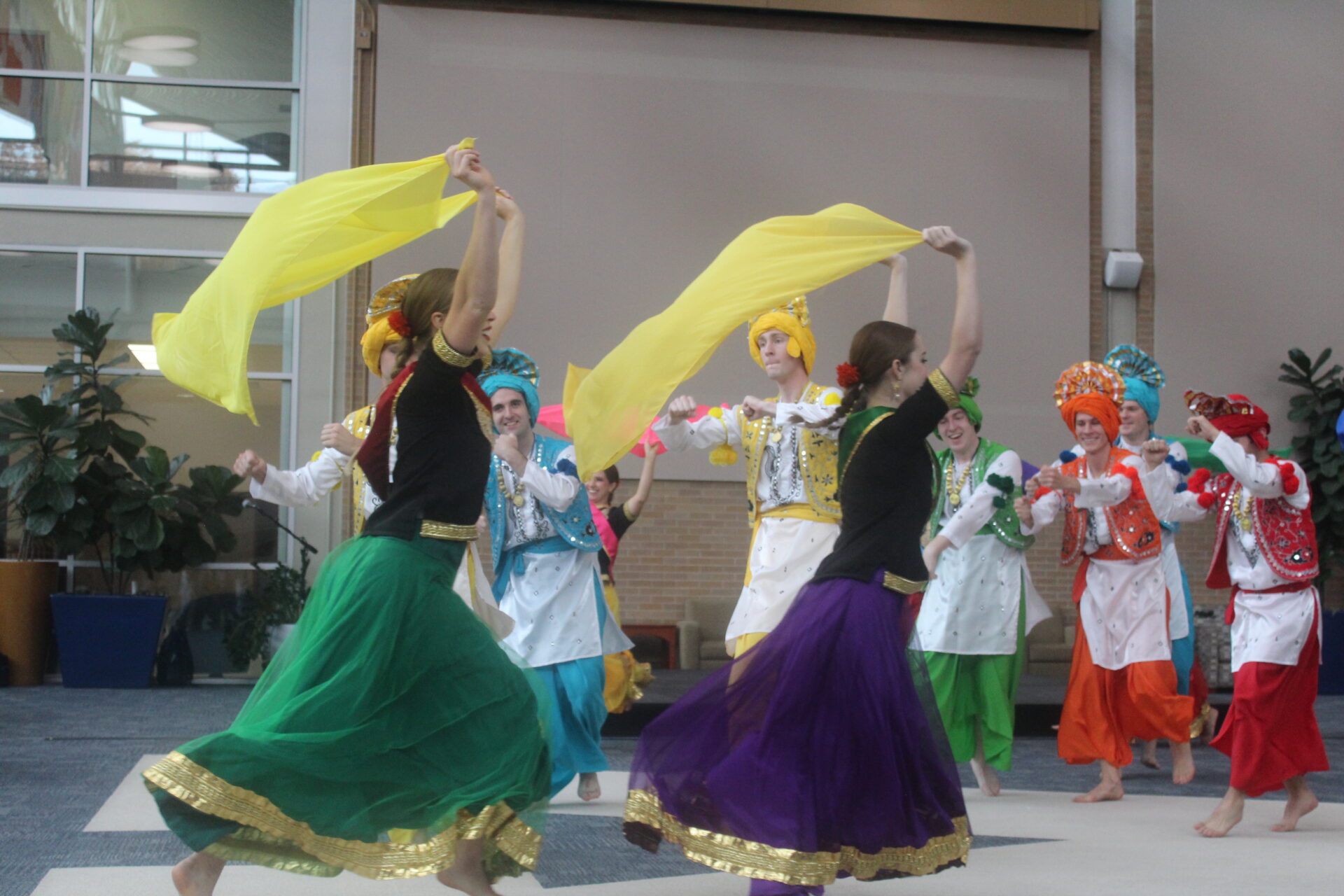While Hindus, Sikhs, Jains and Buddhists in every country celebrated Diwali, BYU’s South Asian Student Association hosted its own Diwali festivities on Nov. 6 in the Wilkinson Student Center.

Diwali, commonly known as the “Festival of Lights,” is a Hindu-originated festival that celebrates the spiritual triumph of good over evil and light over darkness.
The event served Indian food, BYU students performed traditional dances and members of the association taught the audience how to dance and apply henna, a plant-based dye put on the skin.

Francesca Lawson, the faculty advisor for the student association, said the event was catered to the increasing number of South Asian students at BYU, but also to those who do not normally celebrate Diwali.
“It’s teaching the rest of our community about this celebration and about the cultures that are practiced in South Asia,” Lawson said.

Kethura Vennamala is an information technology major and the vice president of the South Asian Student Association. She is also an international student from Hyderabad, India, who moved to the United States two years ago to attend BYU.
Vennamala is a Christian and said although Diwali is not a Christian holiday, celebrating helps her gain a sense of diversity and civic pride.
“All of us come together into a dialogue, which usually never happens when you have your own religion,” Vennamala said. “I think every festival in India, or South Asia, wants to bring people together, because we celebrate together, and it helps us become one.”
Diwali is mainly observed by religions of South Asian origin, but its significance has spread to the West. Even NASA and the White House have sent out holiday wishes on social media, addressed to those who celebrate Diwali.
Vennamala said she would like to expand the understanding and recognition of South Asian culture even further at BYU through the association’s event.
“It’s not really a prominent festival like Christmas. So I feel like the reason why we are having the festival as a big event for our club is because we want to share our culture,” Vennamala said.




